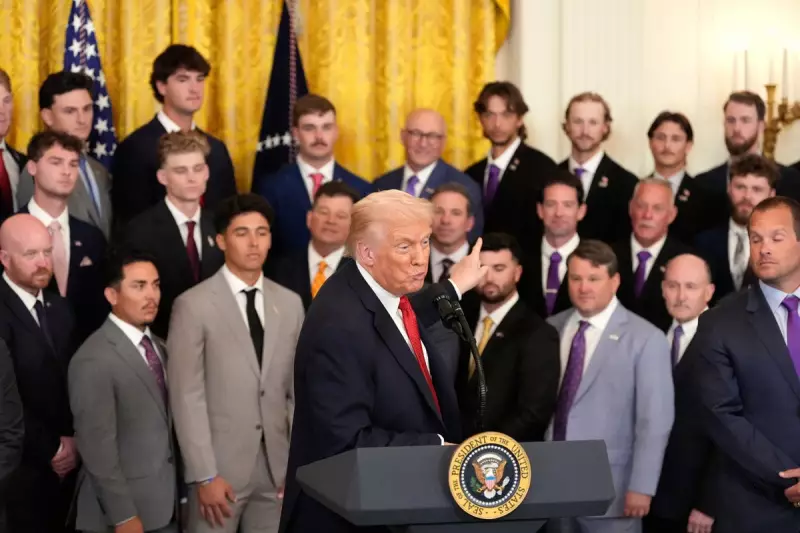
In a stunning revelation that blurs the lines between politics and collegiate athletics, former President Donald Trump directly intervened in Louisiana State University's handling of a major basketball corruption scandal.
White House Pressure on College Sports
According to newly emerged information, Trump personally contacted LSU officials during his presidency, urging them to suspend then-head basketball coach Will Wade. The pressure came amid an FBI investigation into corruption within college basketball recruiting.
The intervention represents one of the most significant examples of political interference in college sports history, raising serious questions about the appropriate boundaries between government authority and athletic department autonomy.
The FBI Investigation Background
Will Wade found himself at the centre of controversy following revelations about his recruiting practices. Recorded conversations captured Wade discussing what prosecutors described as a "strong-ass offer" made to a recruit, prompting widespread speculation about potential NCAA violations.
LSU initially resisted suspending Wade, despite mounting pressure from various quarters. The situation escalated dramatically when presidential influence entered the equation, creating an unprecedented challenge for university administrators.
Political Muscle Flexed
Trump's direct involvement demonstrates the extent to which the White House was willing to exert influence over collegiate athletic matters. The former president, known for his interest in sports and relationships with coaches, took a personal interest in the case that surprised many observers.
The situation places LSU in an uncomfortable position, caught between presidential pressure and the traditional autonomy of university athletic departments in handling internal disciplinary matters.
Broader Implications for College Sports
This revelation comes at a sensitive time for collegiate athletics, with the NCAA facing increasing scrutiny over its enforcement procedures and the entire model of amateur athletics under challenge in courts and state legislatures.
The knowledge that political pressure could influence disciplinary decisions raises new questions about the integrity of NCAA enforcement processes and whether powerful external forces might shape outcomes in high-profile cases.
As college sports continues to navigate complex issues around athlete compensation and program integrity, the shadow of political interference adds another layer of complication to an already challenging landscape.





